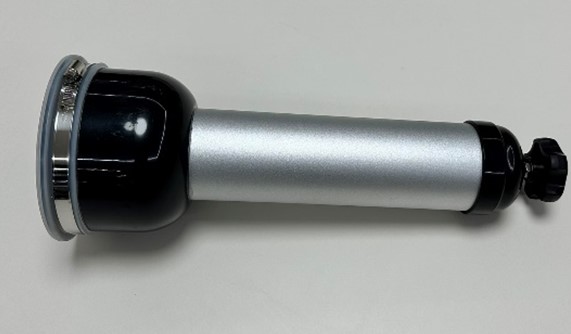Cyprus ranks first in the EU in animal consumption of antibiotics
Over the weekend of 6-7 July, trainers from Europe were in Larnaca to participate in a two-day training on the correct use of antimicrobial substances, organized in collaboration with the Veterinary Service of the Ministry of Agriculture, the Pan-Cyprus Veterinary Association and with funding from the European Commission. On the occasion of the workshop, participating institutions and teachers spoke on KYPE about the progress and challenges facing Cyprus.
According to Eurostat, the number of deaths due to antimicrobial resistance in the EU reached 2,100 in 2020 and 89 in Cyprus. According to the OECD, the financial impact on HEALTH systems is estimated at €1 billion per year.
At the EU level, the goal has been set to reduce the level of use of substances with antimicrobial activity by 50% by 2030. Cyprus is also on this path. Speaking to KYPE, Veterinary Services DIRECTOR Christodoulos Pipis said the goal is to reduce the use of antimicrobial substances as much as possible by breeders and health officials who monitor the premises from a veterinary perspective.
Pipis explained that the problem of reckless overuse and unsustainable use of antimicrobial substances essentially originated in the pig and poultry sector. As he mentioned, to address this problem, the Veterinary Service has decided, in collaboration with the Cyprus Agricultural Payments Organization, to develop a program aimed at reducing the use of antibiotics , within the framework of the Common Agricultural Policy 2023-2027.
The intervention focused on three years of strategic action on pig farms to reduce the use and disposal of substances with antimicrobial activity. Specific actions included, but were not limited to, contracting with a private veterinarian, an annual vaccination program , implementing an approved biosecurity plan, and assessing animal health through laboratory testing. Successful implementation resulted in a 23.4% reduction in annual antimicrobial sales on participating farms.
“The key to all efforts to reduce the use of substances with antimicrobial activity is awareness of the seriousness of the particular problem by the concerned authorities and their conscious and positive participation and contribution to the entire effort, which is a team effort and not an individual initiative,” he said.
Pipis added that similar measures will be applied to poultry and then to other animal species such as small and large ruminants, pets and rabbits.
He also stated that the purpose of the service is to create an electronic prescription system so that in real time the behavior of health care workers can be observed, monitored and assessed, who will prescribe exclusively the use of substances with antimicrobial activity. Educational meetings with stakeholders are also planned, he said.
However, the Director of Veterinary Services assured that MEAT and meat products available on the market are, from a sanitary point of view, safe for human consumption, both in terms of health, animal welfare, necroscopic inspection of carcasses, and in terms of the level of use of substances with antimicrobial activity.
This, according to him, is evidenced by the results of both scheduled inspections carried out by the Veterinary Service and intensive inspections during the Christmas and Easter periods, as well as a program for controlling and monitoring the presence of residues of substances with antimicrobial activity, which is carried out in accordance with the relevant EU legislation. If trial tests reveal that the maximum permissible levels of substances are exceeded, the meat is confiscated, destroyed and removed from the food chain.
Director General of the Ministry of Agriculture Andreas Grigoriou, speaking to KYPE, welcomed the training program being carried out in Larnaca, highlighting the importance of rational use of antimicrobials.
“Unfortunately, with long-term use, antimicrobial resistance is recorded, so their use must be correct, as prescribed by authorities, experts, veterinarians, only where necessary, precisely in order to reduce antimicrobial resistance to these substances,” he said He also noted
that in recent years there have been positive changes, in particular, a reduction in the use of antibiotics by 50% on pig farms thanks to a program implemented by veterinary services in cooperation with pig farmers.
The progress in the pig farming sector was confirmed by the vice-president of the Pan-Cyprus Pig Farmers Association, Katerina Hatzikiriakou. According to her, this reduction is due to the fact that specific plans were opened in the Common Agricultural Policy, giving incentives to pig farmers to make such efforts. Now very few pig farmers have remained outside the framework of this plan. With the arrival of new generations in the profession, they look at this issue differently. in the past, when antibiotics were more often used to solve problems faced by animals .
Antimicrobial reduction training project manager Monica Zambala from Spain said the company she works for was commissioned by the European Commission and seven member countries have already completed the training. She noted that interest in Cyprus has exceeded initial estimates. About 75 people took part in the program, which she called a great success.
“The interest they showed, the way they worked, the answers to questions, the relationship between farmers and veterinarians - it really was a very good experience,” he added.
Zambala noted that two years ago Cyprus had one of the highest levels of antimicrobial consumption per kilogram of meat in the EU, however recent case studies presented during the training show that Cypriot farmers are now implementing measures to significantly reduce the use of antimicrobials and that One of the largest pig farms has already achieved a 95% reduction in antibiotic use.
The Italian education coordinator and vice-president of the Federation of Veterinarians of Europe (FVE), Masenzio Fornazier, clarified that there cannot be a complete exemption from the use of antibiotics, but their use should be reasonable and only when really necessary.
“We should only use antibiotics when necessary, not because we don't know or because they may or may not be helpful. Therefore, we must have a clear diagnosis of the animal and the correct treatment based on the diagnosis,” he said.
Fornacier also mentioned specific problems faced by Cypriot farmers, such as high summer temperatures, quality and water management issues, problems that other southern European countries also face.
“If you want to reduce the use of antimicrobials, you will have to work hard to improve husbandry practices, temperature control, humidity control and cleaning procedures. It takes time and resources,” he explained.
Vice-President of the Pancypriot Veterinary Association Nektarios Ioannou Arsenoglu, in a conversation with KYPE, emphasized the role of veterinarians in the correct and rational use of antibiotics. He noted that the reduction target is achievable and there are already good examples in the real estate sector, despite the fact that Cyprus cannot be on the same level as the northern countries.
He also expressed the position of the Veterinary Association that decision centers in Cyprus should help implement Article 25 of the European Animal Health Law , which provides for regular clinical checks by a veterinarian in all establishments where animals are kept.
“I am confident that by applying the paper in this way we will achieve much better results in the future,” he said.
In conclusion, he mentioned that it is necessary to solve the problem of vaccine shortages observed in recent years due to changes in the drug law, so that there are weapons to prevent diseases, so that antimicrobial substances are not used in such large quantities.




























































